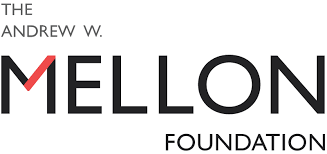| 20 Sep 2018 - 21 Sep 2018 | All day | Room S1, Alison Richard Building, 7 West Road, Cambridge, CB3 9DT | |
- Description
- Programme
Description
Workshop organised by the Mellon-Funded Religious Diversity and the Secular University project at CRASSH.
Participation is free and open to everyone, but registration is required and scholars interested in participating are asked to commit to attending the full two days. To register please contact Judith Weik.
At this two-day international workshop we shall discuss six short, powerful essays by six-world-class scholars, reflecting on the ways theology as a discipline has understood religious diversity and how it has understood, negotiated and maintained its place in the secular university.
Religious diversity – the multiplicity of religions and of religious confessions within religious traditions – has been a constant factor in the lives of Jews, Christians and Muslims. Social historians have long studied religiously diverse societies, from ancient Palestine and Egypt to Medieval Spain to such Early Modern metropoles as Istanbul, Venice, Amsterdam and Philadelphia to the modern globalising West. Scholars of religion continue to illuminate countless ways in which religious traditions interact with others and indeed often define themselves in terms of others.
But what of the academic discipline of theology? How has theology wrestled and come to terms with religious diversity? In the Middle Ages, theology was one of the three original faculties of the university (alongside law and medicine); in Early Modern Europe, faculties of theology turned into central theatres for the confessionalisation of European Christendom. But how have the intellectual upheavals and transformations of modernity that followed the Enlightenment – the political emancipation of religious minorities, the disintegration of confessional tests for college admission, and the secularisation of science and academic research – changed this ancient academic discipline? How, in turn, has the discipline of theology reacted to both the ongoing religious diversification and the secularisation of the university and to the study of religion across the humanities and social sciences? These and similar questions will guide our conversations.

‘Religious Diversity and the Secular University’ is funded by the Andrew W Mellon Foundation to support a multi-disciplinary examination of the interplay between religion, secularism, and the role of the university, reference #41600622.
Programme
Thursday 20 September 2018 |
|
| 11:00 - 12:30 | Rowan Williams, University of Cambridge Diversity and the Worlds of Embodied Thought Respondent: Simone Kotva, University of Cambridge |
| 12:30 - 14:00 | Lunch |
| 14:00 - 15:30 | Catherine Pickstock, University of Cambridge Theology, Secularity and the University Respondent: Christian Wiese, Goethe Universität Frankfurt |
| 15:30 - 16:30 | Coffee |
| 16:30 - 18:00 | Benjamin Dueholm, Pastor in the Evangelical Lutheran Church in America and independent writer What to Make of a Diminishing Thing: Education, Christian Humanism, and the Ethos of Democracy Respondent: Robin Osborne, University of Cambridge |
Friday 21 September 2018 |
|
| 9:30 - 11:00 | Bekim Agai, Goethe Universität Frankfurt Islam within the Setting of a Secular University in Germany – Islamic Theological Studies in a Contested Field Respondent: Ian McFarland, University of Cambridge |
| 11:00 - 11:30 | Coffee |
| 11:30 - 13:00 | Ruth Jackson, University of Cambridge Sleepwalkers and Sirens: Hope and Failure in the Modern Academic Theology Respondent: Gillian Clark, University of Bristol |
| 13:00 - 14:00 | Lunch |
| 14:00 - 15:30 | Paul Weller, Coventry University, University of Derby, University of Oxford Doing What, By Whom, For Whom and How? Interests, Modes, Methods and other Dynamics in “Theology” and/or ‘Religious Studies” Respondent: Tim Jenkins, University of Cambridge |

